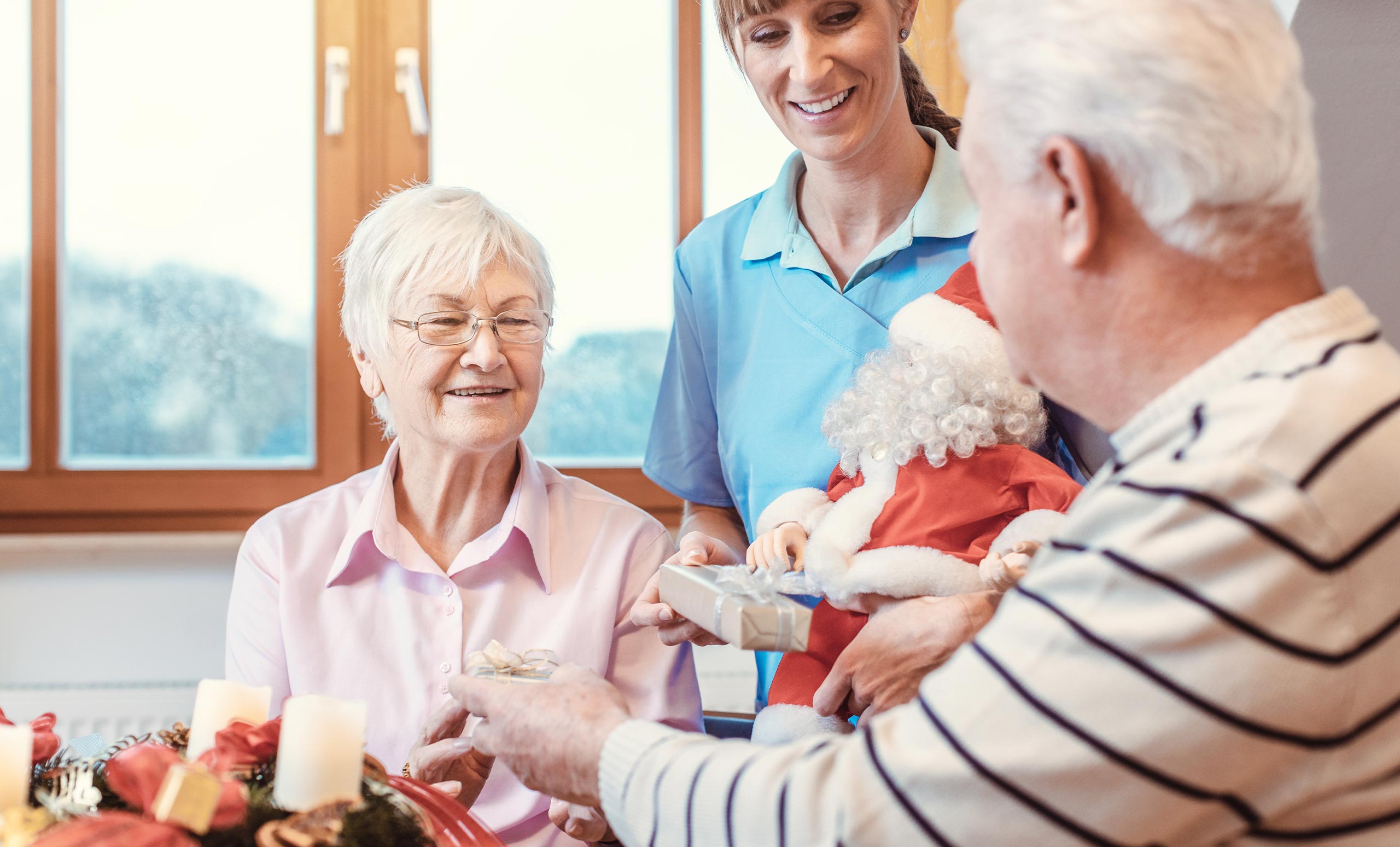As the holiday season comes near, our homes and streets are transformed into dazzling displays of lights, decorations, and festive cheer. However, holidays for bereaved families can evoke a complex mix of emotions. The holidays, traditionally a time of celebration and togetherness, may take on a more poignant meaning when a loved one is facing a progressive illness. Hospice patients and their families often feel disconnection, guilt, loneliness, and even depression as they confront the reality of impending loss.
While some families may choose to avoid the festivities, others may feel compelled to continue beloved traditions, even in the face of these challenges. How can you spend the holidays in hospice care and find meaningful ways to celebrate?
Finding Balance During the Holidays
When a loved one is in hospice care, the holiday season can feel overwhelming. Some families may feel an urgency to fulfill every bucket list item or create elaborate celebrations, driven by the fear that this could be their loved one’s last holiday. On the other hand, others may find themselves emotionally or physically drained, struggling to engage in holiday activities as they manage the day-to-day realities of caregiving.
The key is to approach the season with realistic expectations. It is essential to remember that there is no “right” way to celebrate the holidays during this time. Families should feel empowered to create their own holiday experience, one that prioritizes the comfort and well-being of their loved ones.
Flexibility is crucial. If continuing traditions seems too difficult, scaling back or creating new, more straightforward traditions that focus on being together is okay. The most meaningful aspect of the holidays is not the grand gestures but the time spent with loved ones, cherishing the remaining moments. For some, a quiet gathering at home, watching favorite holiday movies, or reminiscing about past celebrations may be more meaningful than a large party.
How Hospice Care Supports Families During the Holiday Season
Hospice care is specially designed to provide comfort, support, and peace during the most challenging phases of life, and the holiday season is no exception. Hospice teams can be a lifeline for patients and families during this time, offering personalized care plans that consider the emotional and physical needs of the patient while providing respite and support for caregivers. This is especially important during the holidays when caregiving can be even heavier.
For those patients spending the holidays with hospice care, these specialized teams work closely with families to set realistic goals for the season. Whether that means helping a patient attend a small holiday gathering, decorating their room, or organizing visits from loved ones, hospice teams are committed to making the season as joyful and meaningful as possible.

Creating Comfort and Joy, No Matter the Circumstances
For many patients in hospice care, especially those who are homebound, participating in traditional holiday celebrations may no longer be possible. However, that does not mean the holidays have to lose their meaning. Hospice teams are skilled in finding creative and meaningful ways to bring hospice cheer to patients, ensuring they still experience the warmth and connection of the season.
Simple gestures can go a long way. For patients who are unable to leave their home or care facility, nurses and caregivers can help set up holiday decorations, play festive music, or organize virtual visits with family members. Sharing a meal, even if it is just a favorite holiday dish, can also bring a sense of togetherness. For many patients, small moments, like hearing a favorite holiday song, sharing stories with family, or watching twinkling lights, can create a deep sense of peace and connection.
Even in a care facility, there are meaningful ways to celebrate the holidays. Hospice teams, alongside family members, can ensure that patients feel surrounded by love and care. Last year, the National Hospice and Palliative Care Organization (NHPCO) found that over 1.61 million patients receive hospice care in the U.S. annually, with many hospice providers highlighting the importance of emotional and spiritual well-being, especially during the holiday season.
Making the Most of the Last Holidays
For families facing the final holiday season with a loved one, the focus should be on creating lasting memories and cherishing every moment together. While this time can be emotionally challenging, it can also be an opportunity to reflect on the importance of connection, love, and gratitude. By concentrating on the patient’s comfort and well-being, families can create a peaceful and meaningful holiday experience.
Hospice care is not only about medical support but about providing families with the tools and resources to make the most of the time they have left with their loved ones. Whether a quiet evening at home or a festive gathering of close friends and family, the goal is to foster an environment where everyone feels supported and cared for.
What You Can Do to Plan a Holiday with Hospice Care
If you have a loved one in hospice, here are a few practical tips to help you make the season as smooth as possible:
Finding Meaning in the Holidays
Even under the shadow of end-of-life, the holiday season can still be a time of love, connection, and joy. While the circumstances may be different, the heart of the season remains the same: spending time with the people who matter most. Hospice care can help guide families through this challenging time, ensuring that patients feel cared for and families feel supported.
At Ascend Hospice Care, we recognize that the holidays can be bittersweet for families facing loss. That’s why we focus on providing compassionate care that allows families to celebrate the season in a way that feels right for them. Our teams can offer respite care, giving caregivers a much-needed break to rest and recharge. In addition, we provide emotional support through counseling, helping both patients and families process the complex feelings that arise during the holidays.




